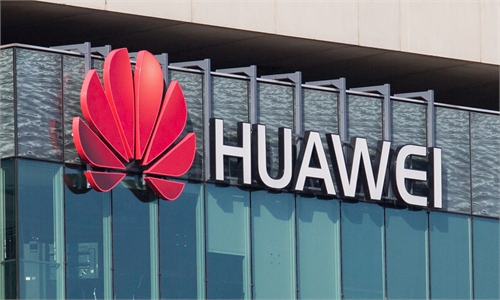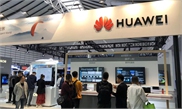SOURCE / INDUSTRIES
Huawei accelerates smartphone HarmonyOS launch as US license expires

Richard Yu, CEO of Huawei's Consumer Business Group, unveils the HarmonyOS, or Hongmeng in Chinese, during the Huawei Developer Conference held in Dongguan, south China's Guangdong Province, Aug. 9, 2019. Photo: Xinhua
Chinese tech company Huawei is poised to speed up the launch of its own HarmonyOS operating system on its smartphones at the year end, after the expiration Thursday of a US temporary license that could potentially cut off Huawei's access to Google's Android updates, analysts said.
In a further step in its relentless crackdown on China's technology rise, Washington did not renew a temporary general license that allowed some US companies to provide Huawei with parts. The license, which expired Thursday night, also permitted Google to provide Android updates and security patches to Huawei's devices.
Huawei was put on a US trade blacklist in May last year, under which American companies were barred from supplying the Chinese firm. The US Department of Commerce issued a special license to partly lift the ban and extended it several times, with the latest extension expiring Thursday.
Huawei Tuesday denied media reports that the Android system on its phones couldn't be updated, saying that users can still download and update applications via Google Play. For devices without Google Play, users can still access applications and security updates via Huawei's own app store AppGallery.
It is not clear how Google will respond to the ban. The company had not responded to an interview request from the Global Times as of press time.
While the ban will not have an impact on Huawei smartphones in the domestic market, some analysts noted that certain older versions of Huawei smartphones in overseas markets - which use operating systems that are largely reliant on Android - could be affected.
"Huawei has been developing its own version of an operating system (EMUI) based on the Android system since the launch of Mate 20, with its basic structures evolving to be drastically different from those of Google. As the system is not dependent on Android, it is not a big deal whether Huawei devices receive updates or not," Ma Jihua, a veteran industry analyst and close follower of Huawei, told the Global Times.
Huawei launched the Mate 20 devices in October 2018.
Jiang Junmu, an editor at telecom industry news website c114.com.cn, told the Global Times that Huawei's Mate 40 series, which is scheduled to launch in September, will not be equipped with the Google Mobile Service after the ban takes effect.
"This could deal a blow to Huawei's overseas sales, and the company must prioritize sustaining growth in the domestic market," Jiang added.
Due to the rapid development of the Huawei Mobile Services (HMS) ecosystem, Huawei may soon launch a smartphone equipped with its proprietary HarmonyOS, according to a media report that cited industry information Sunday.
Ma predicted that Huawei could launch the HarmonyOS on smartphones as early as the end of 2020, riding on the boom of China's 5G network expansion.
"Huawei is fully prepared in terms of operating system technology. The potential applications of HarmonyOS in the Internet of Things are massive. The only issue is how to cultivate an ecosystem in a quick manner," Ma noted.
As of March, the HMS ecosystem was available in more than 170 countries and regions. It had more than 4 million monthly active users and more than 1.3 million developers and partners globally, according to media reports.



